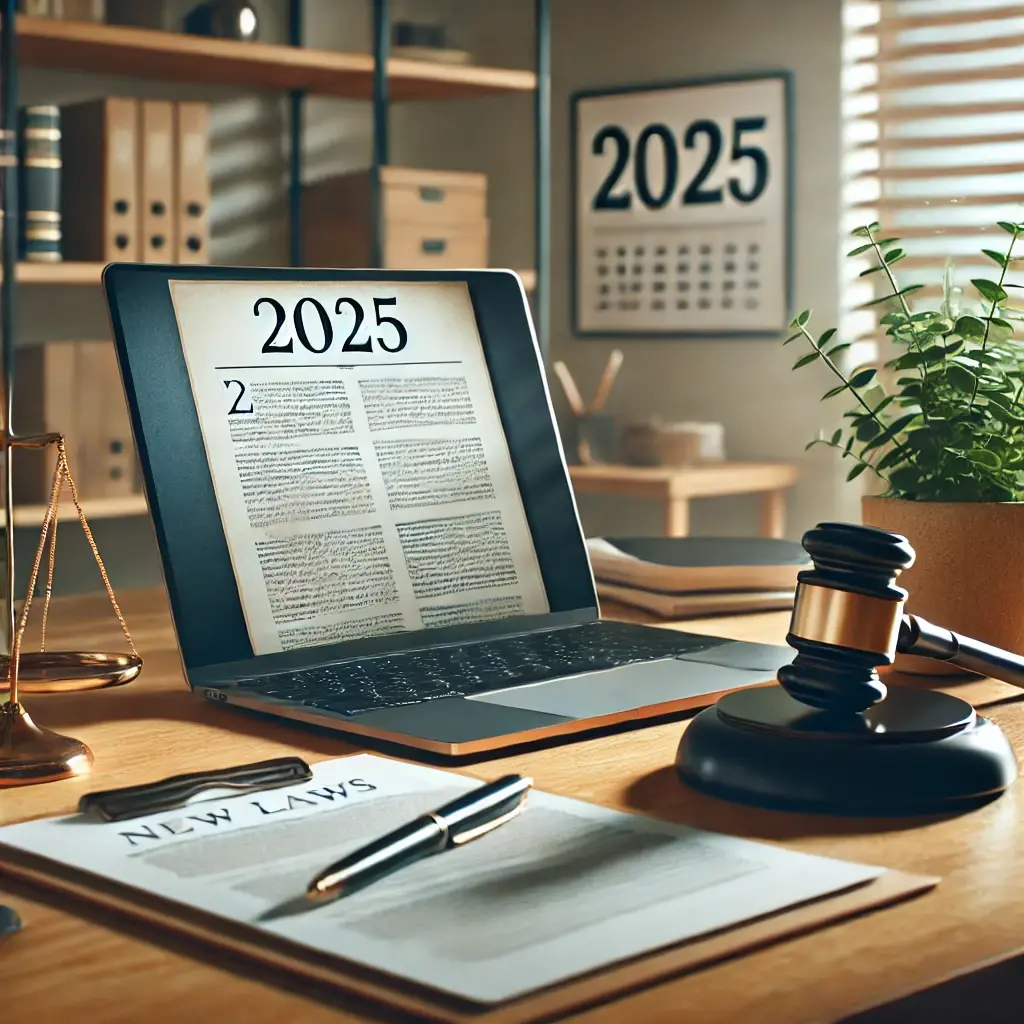Disclaimer: I am not an attorney. This information is provided for general informational purposes only and should not be considered legal advice. Please consult with an attorney for advice specific to your situation.
Just when you thought you were getting comfortable with the 2023 and 2024 legal changes (and if you don’t know what they are, you better catch up), here comes 2025 with even more updates to shake things up. The shift from 2024 to 2025 isn’t just another year—it’s a whole new landscape of laws that will impact your business big time. Let’s skip the panic. Here’s the scoop on the new laws rolling out in Illinois starting January 1, 2025.
🚪 Say Goodbye to Redundant Fees: Reusable Resident Reports
Ever feel like application fees are causing unnecessary frustration in the rental process? New rules now require landlords to accept reusable resident screening reports (Read the law here), making the process smoother and more efficient for everyone. Here’s how this works for you as a landlord or property manager:
The report must be:
Prepared within the last 30 days by a certified credit reporting agency.
Shared with you directly (or via a platform) at no cost to you.
You still get to verify residents without making them pay multiple times. This change ensures residents have a streamlined and cost-effective process while landlords still receive all the necessary information for resident verification.
💸 No More "Surprise!" Fees on Rent Payments
Nobody likes sneaky fees. Residents paying rent online have been hit with extra charges long enough. Starting in 2025, landlords must offer fee-free payment options (Read the law here) like paper checks or cash. Here’s the breakdown:
If a portal charges e-check or credit card fees, residents get to choose other methods without paying extra.
This applies to all leases signed after this law kicks in.
This ensures that residents have accessible and transparent payment options without added costs.
🛡️ Resident Power-Up: The Landlord Retaliation Act
Picture this: A resident calls out about unsafe mold in their unit. Suddenly, their rent spikes, or their lease isn’t renewed. Not cool, right? The Landlord Retaliation Act makes moves like that illegal (Read the law here). Here’s what’s covered:
Landlords cannot:
Terminate leases or raise rents in retaliation for resident complaints.
Decrease services or threaten lawsuits to silence residents.
Residents who face retaliation can:
Get up to two months’ rent or twice their damages back.
Have their attorney fees covered.
This law provides residents with legal protections to ensure they can report issues without fear of retaliation.
🅿️ Accessible Parking: A Game-Changer for Condo Residents
Imagine a wheelchair user finally getting an accessible parking space near their condo—no more parking struggles! Updates to the Condominium Property Act make this a reality (Read the law here):
Condo boards must:
Adopt policies to accommodate disabled residents’ parking needs.
Prioritize accessible parking for those who need it most.
Resolve requests within 45 days.
For new condos, accessible spaces stay as common elements—they can’t be sold off.
Disabled residents can sue for fair treatment if boards don’t comply.
These amendments aim to ensure accessibility and fair treatment for individuals requiring accessible parking.
🌊 The Truth About Flood Zones: What Landlords MUST Share
Flooding can turn a dream home into a nightmare. That’s why landlords now must come clean about flood risks (Read the law here). Here’s what you need to disclose:
If your property is in a FEMA flood zone (aka "100-year floodplain").
Past flooding events in the last 10 years, including frequency.
Whether lower-level units (basements, garden apartments) have been flooded.
Why it matters? Residents armed with this info can make informed decisions. If landlords don’t disclose and flooding occurs, residents have the right to break the lease and seek damages.
Why These Laws Are a Big Deal
These updates aren’t just about compliance; they’re about building trust. Transparent, fair practices make happier residents and smoother operations. Plus, nobody wants to be on the wrong side of a lawsuit, right?
🎯 Quick Links to Stay Ahead
Check if your property’s in a flood zone: fema.gov
Learn about reusable resident reports: ready.gov
Accessibility resources: dnr.illinois.gov
Stay sharp, stay proactive, and turn these legal changes into opportunities to shine as a landlord!



